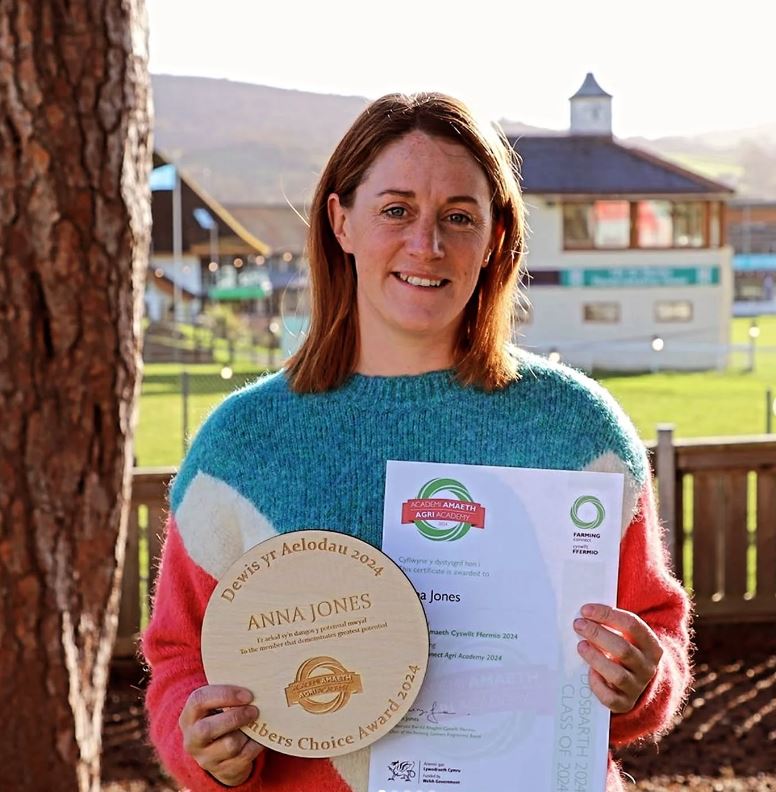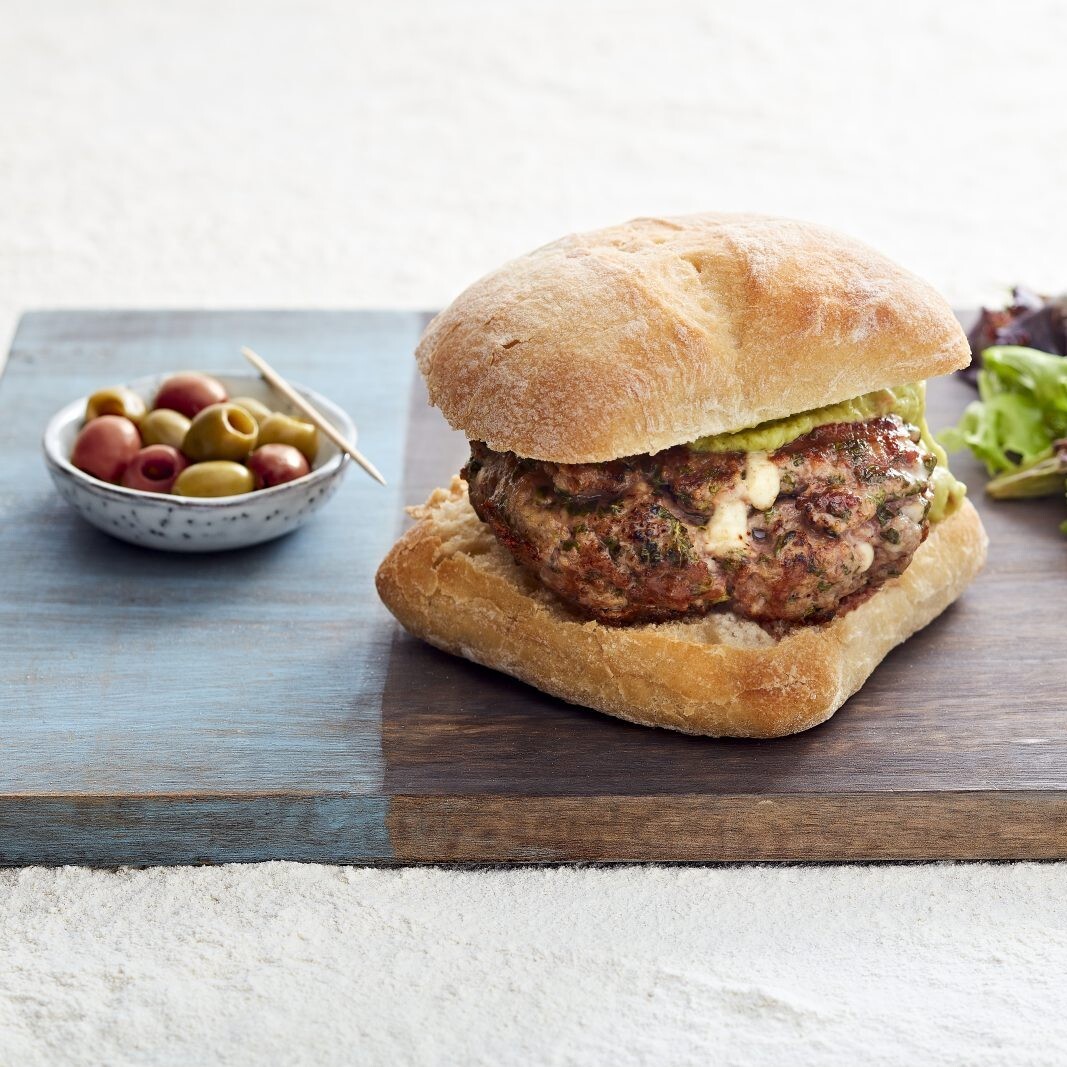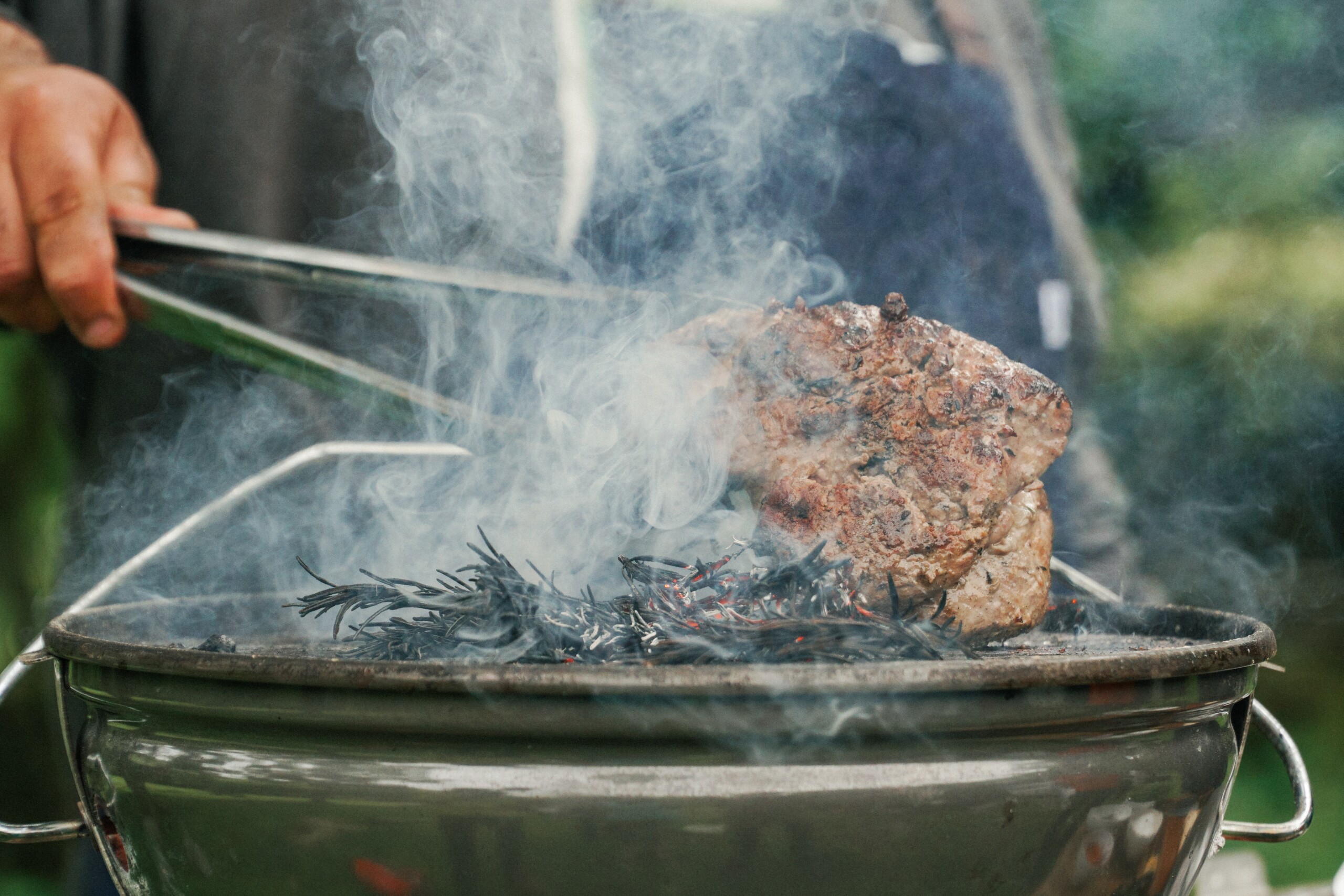The United Nations has declared the 22nd May as the International Day for Biological Diversity (IDB) in order to increase understanding and awareness of biodiversity issues. Of course, Wales is one of the most sustainable places on earth to produce red meat, and Welsh farmers are leading the way in increasing biodiversity on their land, farming in harmony with nature. But this isn’t something new – Welsh farmers have been doing so for generations.
UN Secretary-General, António Guterres summarised the importance of biodiversity, saying,
“From the air we breathe and the food we eat, to the energy that fuels us and the medicines that heal us, our lives are wholly dependent on healthy ecosystems.”
And we couldn’t agree more. From the rugged terrain in the north to the rolling hills in the south, our Welsh farmers share their biodiversity stories with us.
South Wales
On the outskirts of Wales’ capital city, high up in the hills, you’ll find Garth Uchaf farm. Here, fourth generation farmers – and brothers - Ben and Ethan Williams farm over 700 acres of land and are passionate about improving biodiversity on their land, continuing the work their grandfather commenced over 70 years ago. Speaking of his ancestors’ work, Ben said,
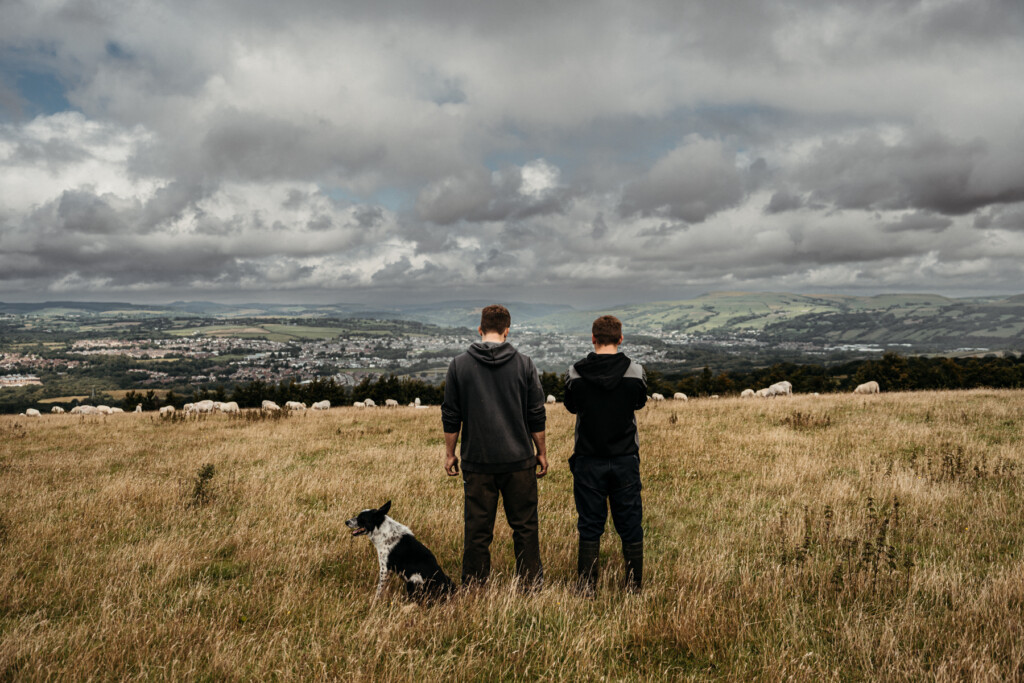 To read more about Ben and Ethan’s story, visit our blog section.
North Wales
On the outskirts of Llanrwst in North Wales, Sian and Llion Jones are the third generation to farm the land at Moelogan Fawr and are equally as determined to continue to improve their on-farm biodiversity. Since taking over the farm six years ago, the couple have planted 24 acres of woodland on the farm, bolstering biodiversity on the farm and improving habitat connectivity across the lower parts of the farm.
As a result of carbon audits and biodiversity surveys, Sian and Llion have also implemented a rotational grazing system, which has resulted in improved soil health and has increased the grazing season for their cattle. When speaking about their goals for a more sustainable future, Sian commented,
To read more about Ben and Ethan’s story, visit our blog section.
North Wales
On the outskirts of Llanrwst in North Wales, Sian and Llion Jones are the third generation to farm the land at Moelogan Fawr and are equally as determined to continue to improve their on-farm biodiversity. Since taking over the farm six years ago, the couple have planted 24 acres of woodland on the farm, bolstering biodiversity on the farm and improving habitat connectivity across the lower parts of the farm.
As a result of carbon audits and biodiversity surveys, Sian and Llion have also implemented a rotational grazing system, which has resulted in improved soil health and has increased the grazing season for their cattle. When speaking about their goals for a more sustainable future, Sian commented,
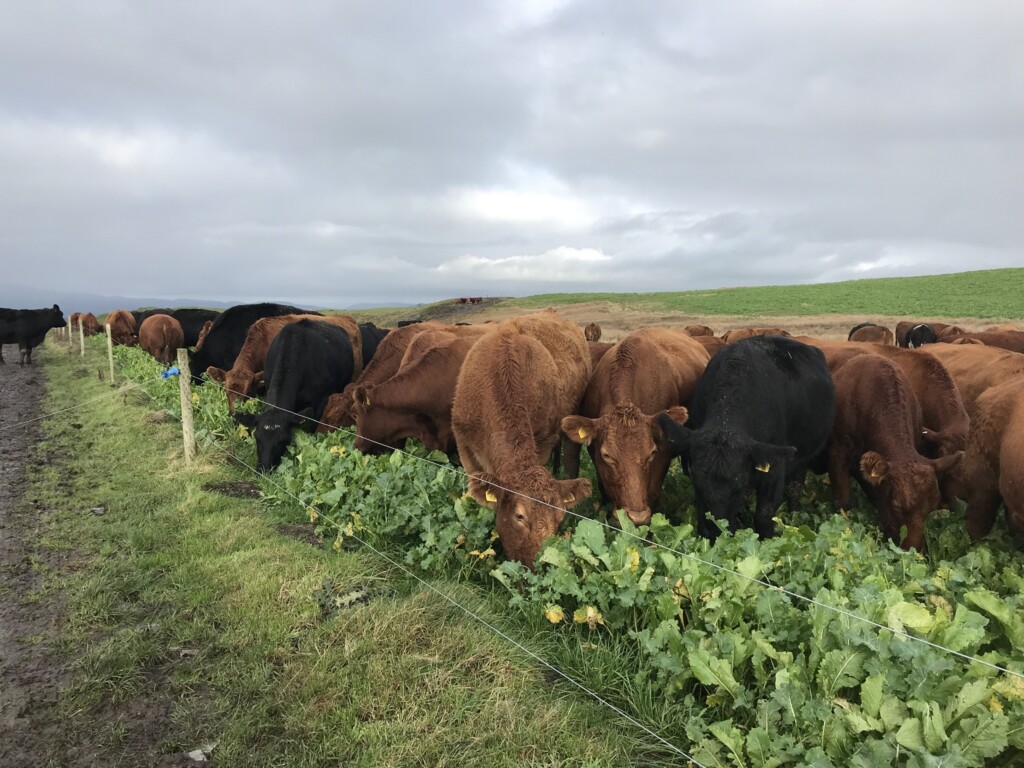 Read more about the Jones’ and their farming story here.
Mid Wales
Nestled in the uplands of mid-Wales, Emily Jones farms 150-acres of farmland alongside her mother and father. Emily, a fourth-generation farmer, is extremely passionate about the agricultural industry and the Welsh Way of farming. Speaking of her commitment to farming as sustainably as possible, Emily said,
Read more about the Jones’ and their farming story here.
Mid Wales
Nestled in the uplands of mid-Wales, Emily Jones farms 150-acres of farmland alongside her mother and father. Emily, a fourth-generation farmer, is extremely passionate about the agricultural industry and the Welsh Way of farming. Speaking of her commitment to farming as sustainably as possible, Emily said,
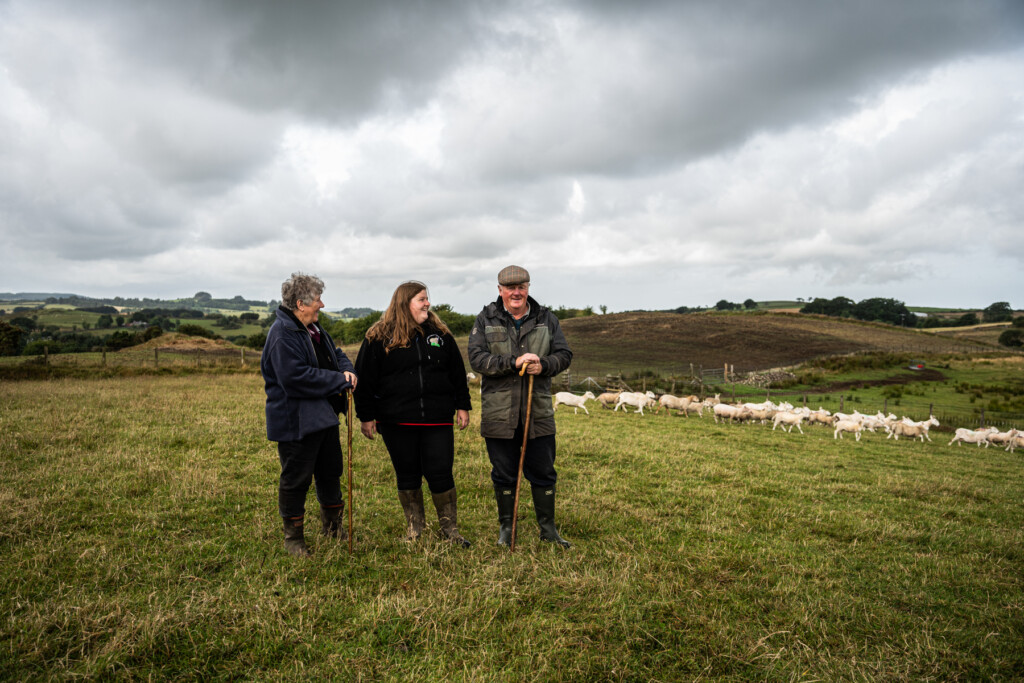 To read more about the Welsh Way of farming, and Emily’s story, head to our blog section.
To read more about the Welsh Way of farming, and Emily’s story, head to our blog section.
“My grandfather carried out work on the hill in the 1950s, which greatly improved the biodiversity here. Visitors to Garth Hill today can appreciate nature at its best – with birds and wildlife thriving”.Over the last 20 years, the family have planted over 80,000 trees and have laid miles upon miles of hedgerows, providing a haven for wildlife. With plenty of additional tree cover, they have many birds nesting on the land, from kestrels and sky larks to buzzards and goshawks to name but a few. And of course, livestock play a key role in land management and biodiversity. Ben commented that,
“We carefully manage our grassland with our sheep, which creates ideal growing conditions for fungi – we even have wax caps growing here, which are quite rare. The sheep also ensure that not one plant species can dominate the grassland. “It’s good to know that while our sheep and cattle are grazing in this rich and diverse natural environment, they are helping to protect it. I think this is what makes Welsh Lamb and Welsh Beef so special. “
 To read more about Ben and Ethan’s story, visit our blog section.
North Wales
On the outskirts of Llanrwst in North Wales, Sian and Llion Jones are the third generation to farm the land at Moelogan Fawr and are equally as determined to continue to improve their on-farm biodiversity. Since taking over the farm six years ago, the couple have planted 24 acres of woodland on the farm, bolstering biodiversity on the farm and improving habitat connectivity across the lower parts of the farm.
As a result of carbon audits and biodiversity surveys, Sian and Llion have also implemented a rotational grazing system, which has resulted in improved soil health and has increased the grazing season for their cattle. When speaking about their goals for a more sustainable future, Sian commented,
To read more about Ben and Ethan’s story, visit our blog section.
North Wales
On the outskirts of Llanrwst in North Wales, Sian and Llion Jones are the third generation to farm the land at Moelogan Fawr and are equally as determined to continue to improve their on-farm biodiversity. Since taking over the farm six years ago, the couple have planted 24 acres of woodland on the farm, bolstering biodiversity on the farm and improving habitat connectivity across the lower parts of the farm.
As a result of carbon audits and biodiversity surveys, Sian and Llion have also implemented a rotational grazing system, which has resulted in improved soil health and has increased the grazing season for their cattle. When speaking about their goals for a more sustainable future, Sian commented,
“We are working towards reducing bought in inputs, getting our livestock as healthy as possible, utilising the grass, and protecting the soil.”
 Read more about the Jones’ and their farming story here.
Mid Wales
Nestled in the uplands of mid-Wales, Emily Jones farms 150-acres of farmland alongside her mother and father. Emily, a fourth-generation farmer, is extremely passionate about the agricultural industry and the Welsh Way of farming. Speaking of her commitment to farming as sustainably as possible, Emily said,
Read more about the Jones’ and their farming story here.
Mid Wales
Nestled in the uplands of mid-Wales, Emily Jones farms 150-acres of farmland alongside her mother and father. Emily, a fourth-generation farmer, is extremely passionate about the agricultural industry and the Welsh Way of farming. Speaking of her commitment to farming as sustainably as possible, Emily said,
“We make every effort to go back to the old times – to older farming traditions. But we’re also looking ahead and doing our bit to help the environment, such as increasing the amount of carbon capture and farming in harmony with nature. This has included planting herbal leys, which include clover, chicory and plantain. All of these have natural uses and will help us improve soil health, and productivity on farm, therefore improving our net carbon emissions.”It is this mix of old traditions passed down through the generations and new, innovative farming practices that makes the Welsh Way of farming so unique, and special. In Emily’s words,
“…it is good to keep the old traditions going alongside more modern methods, which will not only meet changing tastes and trends, but also help keep ethical and environmental standards as high as possible.”
 To read more about the Welsh Way of farming, and Emily’s story, head to our blog section.
To read more about the Welsh Way of farming, and Emily’s story, head to our blog section.
